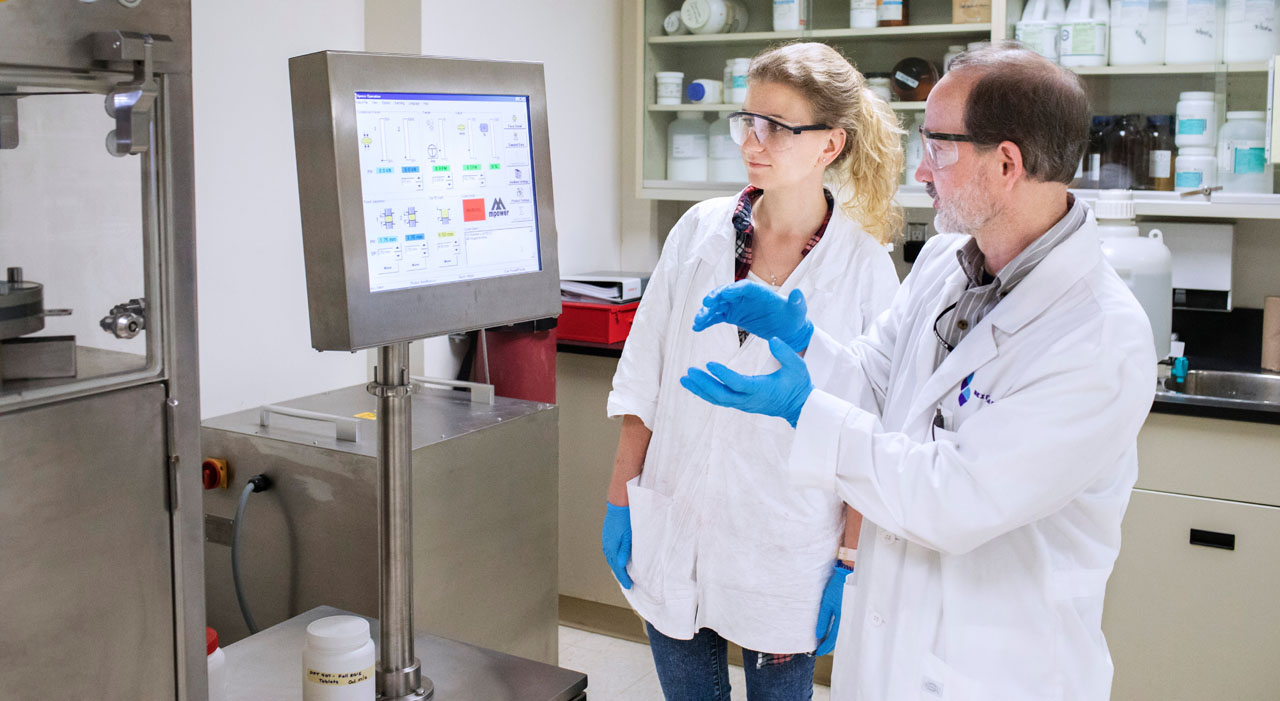This Seneca program has been validated by the Credential Validation Service as an Ontario College Credential as required by the Ministry of Colleges and Universities.
Chemical Laboratory Technology - Pharmaceutical
Program Learning Outcomes
As a graduate, you will be prepared to reliably demonstrate the ability to:
- Research, determine and perform procedures related to the purification, analysis and synthesis of chemical compounds and samples.
- Perform, co-ordinate and implement laboratory procedures to conduct quantitative and qualitative analyses and tests.
- Select, test, calibrate*, troubleshoot* and evaluate chemical analysis instruments and equipment to assure accurate results.
- Implement, co-ordinate and evaluate quality assurance and quality control procedures, including statistical analysis, in accordance with international and industry standards and government regulations.
- Complete, monitor and manage chemical laboratory tasks and projects using computer and information technologies.
- Participate in health and safety practices and initiatives in the chemical laboratory to ensure a safe environment for oneself and others.
- Promote the efficient, sustainable* and ethical use of chemical laboratory resources through the application and analysis of sustainability* practices.
- Communicate laboratory data, results, analysis and recommendations through the preparation, interpretation and presentation of technical reports.
- Collaborate with others and work in chemical laboratory teams to complete laboratory tasks and projects.
- Develop strategies for ongoing professional development to enhance competence as a chemical laboratory technologist.
Glossary of Terms
Calibrate (calibration) — To use a device to measure a sample, or samples, with precisely known properties ("standard(s)") and then to use the measurements produced by the device and the known values of the property together to either a) create a relationship between the measurements produced by the device and the true values of the property being measured or b) to adjust the device to obtain a direct reading of the true value of the property.
Good Laboratory Practice (GLP) — A quality system concerned with the organizational process and the conditions under which laboratory studies and activities are planned, performed, monitored, recorded, archived and reported.
Life Cycle Analysis - Analysis of the environmental impact of a product during the entirety of its life-cycle, from resource extraction to post-consumer waste disposal. It is a comprehensive approach to examining the environmental impacts of a product.
Standard Operating Procedures (SOP) — A set of step-by-step instructions compiled by an organization to direct the completion of routine and/or hazardous operations. The goals of SOPs are to achieve efficiency, quality and safe output and uniformity of performance while reducing miscommunication, risks and\or failure to comply with industry regulations.
Sustainable (Sustainability) — Sustainability encompasses the ethical ideal that calls for optimizing the long-term carrying capacity and vitality of three interdependent systems – environmental, social and economic. In a chemical laboratory environment, sustainability aims to improve the quality of human life, while protecting nature, by engaging in chemical processes that are non-polluting, conserve energy and resources and protect ecosystems, that benefit employees, consumers and communities and that strengthen enterprises that foster economic growth and prosperity.
Troubleshoot (troubleshooting) — To diagnose laboratory equipment and process problems and to propose solutions.
